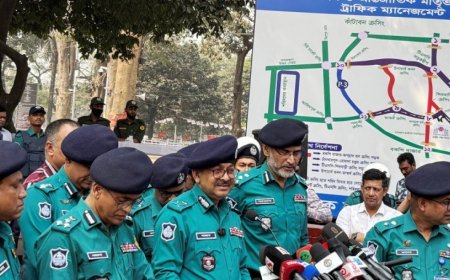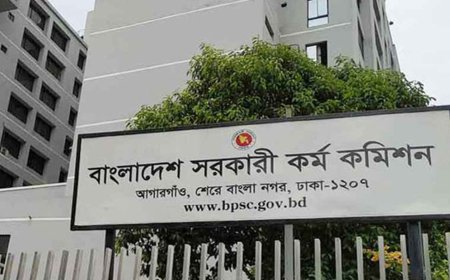Reform commissions propose eliminating secularism and introducing significant changes
Reform commissions propose eliminating secularism and introducing significant changes

- Four reform commissions have submitted their reports to the Chief Adviser.
- A bicameral legislature is proposed, consisting of 505 Members of Parliament (MPs).
- Secularism is no longer considered a guiding principle in the proposed framework.
- The minimum age requirement to contest as an MP has been lowered to 21 years.
- The tenure of Parliament is recommended to be set at four years.
- A Prime Minister cannot assume the role of President, and the Prime Minister's term is capped at two terms.
Reform Commissions Submit Initial Recommendations: Key Highlights
1. Reports Submitted to Chief Adviser
- Four reform commissions presented their recommendations to Chief Adviser Prof. Muhammad Yunus.
- The commissions focused on constitutional, electoral, anti-corruption, and police reforms.
2. Formation and Context
- These commissions were established following the mass uprising of July-August and Sheikh Hasina’s ouster.
- Chief Adviser Yunus assumed leadership on August 8 and initiated the formation of sector-specific reform commissions.
3. Chief Adviser’s Remarks
- Prof. Yunus emphasized the historic nature of the reports, calling them a step toward a consensus-based charter for a new Bangladesh.
- He noted their role in shaping a national narrative for a country recovering from devastation.
Key Recommendations
Constitutional Reform Commission (CRC)
- Principles Update: Replace nationalism, socialism, and secularism with equality, human dignity, social justice, pluralism, and democracy.
- Name Change: Proposed renaming "Gana Prajatantry Bangladesh" to "Jana Ganatantry Bangladesh," retaining the English name "People’s Republic of Bangladesh."
- Bicameral Legislature: Introduce a two-chamber system:
- National Assembly (400 MPs) elected directly.
- Senate (105 members) with 100 nominated by parties and five non-political appointees by the President.
- Age and Tenure: Lower the minimum MP age to 21 and reduce parliamentary terms to four years.
- Referendums: Reintroduce provisions for constitutional amendments through referendums.
- National Constitutional Council: Form a council to oversee checks and balances, including the President, Chief Justice, PM, opposition leader, speakers, and others.
- Limits on PM:
- Two-term cap for the Prime Minister.
- PM subject to no-confidence votes.
- PM’s power to appoint heads of key bodies transferred to the council.
- Presidential Elections: President to be elected by an electoral college for a four-year term.
Election Reform Commission (ERC)
- Term Limits: Prime Minister restricted to two terms and barred from becoming President.
- Power Separation: Divide roles of party leader, PM, and parliamentary head among three individuals.
- Opposition Role: Opposition leader to serve as deputy speaker.
- Local Elections:
- Conduct local body elections before national polls under a caretaker government.
- Ensure local elections are non-political.
Police Reform Commission
- Proposed transforming the police into a people-friendly institution with enhanced community engagement.
Conclusion
The recommendations aim to build a democratic, inclusive, and accountable governance structure for Bangladesh, reflecting lessons from its historical turning points.
What's Your Reaction?





















































































